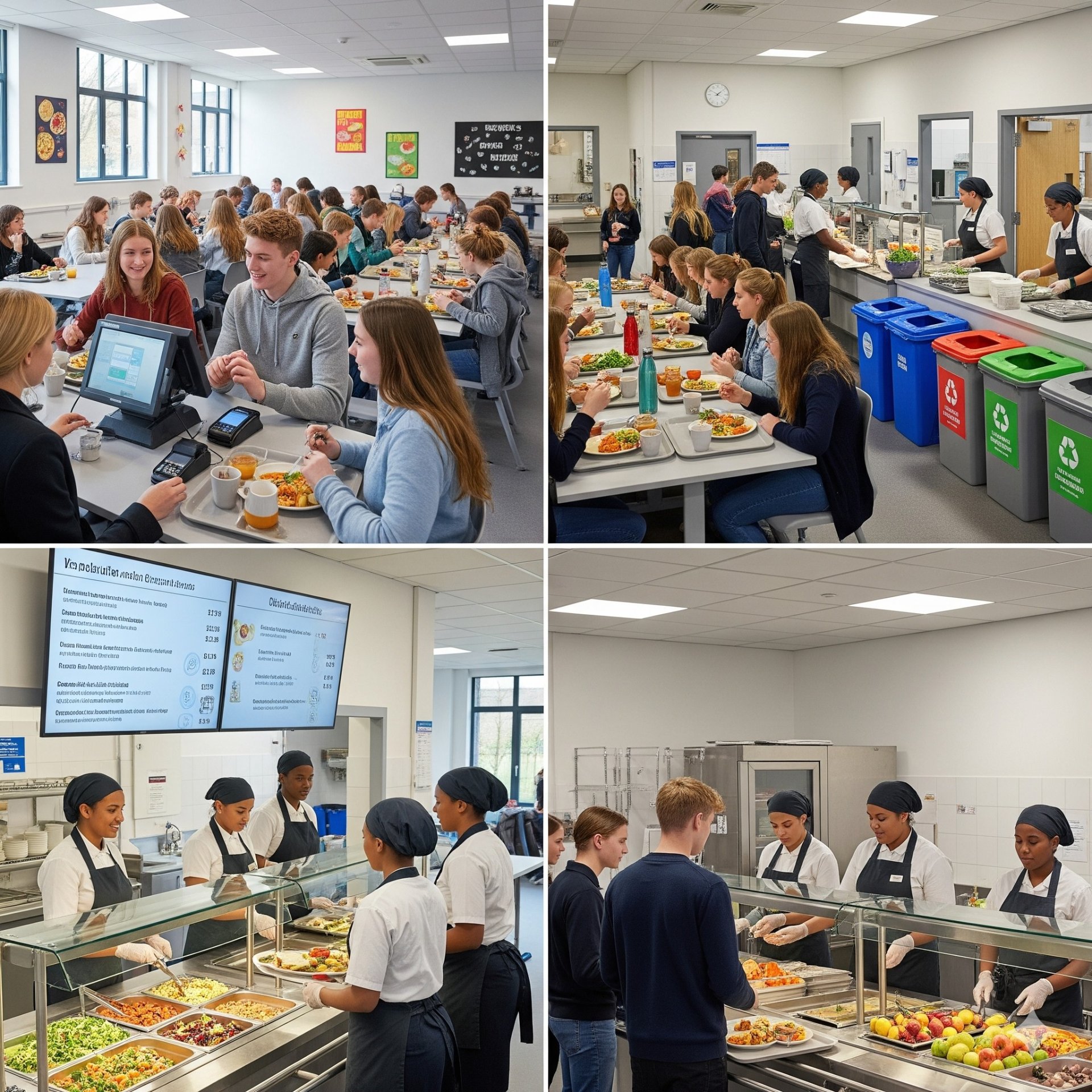Kitchen Management to Increase Employee Productivity
Last updated: 1 Sept 2025
391 Views

Efficient kitchen management starts with systematic planning to reduce unnecessary steps and increase the speed of service.
Plan Menus in Advance: Planning weekly or monthly menus allows for appropriate ingredient preparation, reduces daily procurement hassle, and helps kitchen staff prepare more efficiently.
Optimize Workspace Layout: Arrange equipment and workspaces according to the workflow, e.g., preparation area, cooking area, and serving area should be close together to reduce unnecessary movement of staff.
Utilize Modern Tools and Equipment: Investing in time-saving equipment such as automatic vegetable choppers, meat grinders, or large ovens can help reduce staff workload and make work faster.
Regular Staff Training: Conduct training on new cooking techniques, safe use of equipment, and time management to ensure staff have improved skills and understanding.
Cost-Effective Service
Providing quality and cost-effective service does not mean using the cheapest ingredients, but rather managing resources intelligently to achieve the best results.
Raw Material Cost Control: Procure ingredients from reliable sources at reasonable prices. If possible, enter into long-term purchase agreements to maintain stable prices and reduce cost fluctuations.
Reduce Food Waste: Plan production to align with the actual number of diners, use cooking techniques that minimize leftovers, and repurpose leftover ingredients in other dishes to reduce costs.
Survey Customer Needs: Conduct satisfaction surveys and gather feedback on menus and services to improve and develop services that best meet customer needs.
Appropriate Pricing: If food is sold, set prices that reflect the quality of ingredients and production costs, while remaining accessible and acceptable to the target group.
Good Welfare for Kitchen Staff
Kitchen staff who are well-cared for will have better morale and work to their full potential.
Safe and Hygienic Working Environment: Ensure good ventilation, clean workspaces, and necessary protective equipment such as heat-resistant gloves or non-slip shoes.
Appropriate Working Hours: Avoid excessive overtime for staff, as it can lead to fatigue and reduced efficiency.
Fair Compensation and Welfare: Provide appropriate compensation commensurate with the workload, as well as other benefits such as social security, bonuses, or meal allowances.
Opportunities for Growth: Create opportunities for staff to develop their skills and abilities, such as sending them for additional training or assigning more challenging tasks to build a career path.
Focusing on all dimensions of kitchen management will not only increase work efficiency but also create happiness and satisfaction for both kitchen staff and service recipients, which ultimately benefits the organization as a whole in the long run.
Plan Menus in Advance: Planning weekly or monthly menus allows for appropriate ingredient preparation, reduces daily procurement hassle, and helps kitchen staff prepare more efficiently.
Optimize Workspace Layout: Arrange equipment and workspaces according to the workflow, e.g., preparation area, cooking area, and serving area should be close together to reduce unnecessary movement of staff.
Utilize Modern Tools and Equipment: Investing in time-saving equipment such as automatic vegetable choppers, meat grinders, or large ovens can help reduce staff workload and make work faster.
Regular Staff Training: Conduct training on new cooking techniques, safe use of equipment, and time management to ensure staff have improved skills and understanding.
Cost-Effective Service
Providing quality and cost-effective service does not mean using the cheapest ingredients, but rather managing resources intelligently to achieve the best results.
Raw Material Cost Control: Procure ingredients from reliable sources at reasonable prices. If possible, enter into long-term purchase agreements to maintain stable prices and reduce cost fluctuations.
Reduce Food Waste: Plan production to align with the actual number of diners, use cooking techniques that minimize leftovers, and repurpose leftover ingredients in other dishes to reduce costs.
Survey Customer Needs: Conduct satisfaction surveys and gather feedback on menus and services to improve and develop services that best meet customer needs.
Appropriate Pricing: If food is sold, set prices that reflect the quality of ingredients and production costs, while remaining accessible and acceptable to the target group.
Good Welfare for Kitchen Staff
Kitchen staff who are well-cared for will have better morale and work to their full potential.
Safe and Hygienic Working Environment: Ensure good ventilation, clean workspaces, and necessary protective equipment such as heat-resistant gloves or non-slip shoes.
Appropriate Working Hours: Avoid excessive overtime for staff, as it can lead to fatigue and reduced efficiency.
Fair Compensation and Welfare: Provide appropriate compensation commensurate with the workload, as well as other benefits such as social security, bonuses, or meal allowances.
Opportunities for Growth: Create opportunities for staff to develop their skills and abilities, such as sending them for additional training or assigning more challenging tasks to build a career path.
Focusing on all dimensions of kitchen management will not only increase work efficiency but also create happiness and satisfaction for both kitchen staff and service recipients, which ultimately benefits the organization as a whole in the long run.
Related Content


